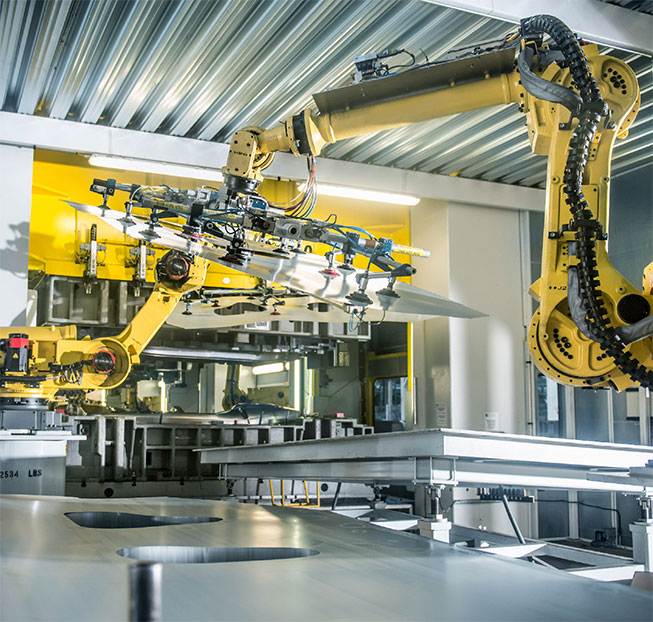The success of a manufacturer’s digital investments hinges on its larger people strategy: recruiting, retaining and reinventing talent.
By Rocky Subramanian
From accommodating supply chain disruptions and stay at home orders to navigating ever-changing health and safety regulations and anticipating unsteady demand, manufacturers were dealt a particularly tricky hand in 2020. But despite its many challenges, this past year reaffirmed that manufacturing is just as critical to the global economy as it ever was – and that digitization is not only the ideal course forward, but the only course forward.

COVID-19 accelerated tech investments in manufacturing by exposing the industry’s weaknesses when confronted with sudden workforce shifts.
When COVID-19 surfaced, some manufacturers were prepared to execute a digital strategy and effectively adapt to unexpected circumstances, while others found themselves hamstrung without the support of a strong technology backbone. To be sure, manufacturers have been pursuing a shift to the cloud for some time, with many working toward 2020 as a convenient benchmark for achieving their transformation goals. While manufacturing leaders have routinely increased their tech investments with an eye toward more speed and efficiency, COVID-19 only accelerated this momentum by exposing the industry’s inherent weaknesses when confronted with sudden workforce shifts.
Looking ahead to 2021 and beyond, it’s not necessarily the technology itself that will make the biggest impact on manufacturers, but rather how well organizations deploy and manage their digital assets. In fact, global manufacturing CEOs consistently recognize talent as the top driver of manufacturing competitiveness – followed by cost competitiveness and workforce productivity. For technology to be effective, its users must be equipped to implement and optimize it. In other words, the success of a manufacturer’s digital investments hinges on the organization’s larger people strategy: recruiting, retaining and reinventing talent as Industry 4.0 unfolds.
Recruiting: According to Deloitte, nearly 3.5 million manufacturing jobs will open up over the next decade, 2 million of which will go unfilled due to a widening skills gap. Manufacturing is often associated with repetitive tasks and traditional workflows – when, in reality, automation and modernization are actively disrupting the industry’s culture and creating new roles for highly skilled workers. Smart manufacturers have an enormous opportunity to recruit top candidates as the talent pool remains displaced due to COVID-19. Attracting the right mix of young and established workers now is vital to advancing an organization’s digital vision.
Retaining: While technology may replace jobs as employees currently know them, it will ultimately open roles up to more meaningful work, not to mention improved safety and efficiency. Monotonous, routine tasks aren’t going to keep skilled workers engaged for long. Meanwhile, technology is better positioned to manage such functions, while redeploying employees for more strategic purposes. Recruiting won’t be enough to close the skills gap; manufacturing leaders must prioritize retaining – making smart investments in upskilling and nurturing environments that enable continuous growth.
Reinventing: The shift to the cloud not only enables manufacturers to more effectively attract and retain a resilient workforce – but it also poses an opportunity to completely reinvent the employee experience. With only so many hours in the day, it’s in leadership’s best interest to empower employees and insert them where they can be the most valuable, while deploying technology to fill the gaps. The good news is, analytics is versatile, and capable of fulfilling different roles for different needs – whether an advisor, supporter, validator, partner, or even manager. For example, cobots can offer a security layer and help keep manufacturing workers on track, while driving operation efficiencies. No matter the task, employee empowerment is rooted in access to meaningful data – which requires smart systems.
Considering how the pandemic has upended so many aspects of manufacturing’s traditional workflows, it’s clear that these unprecedented times have spurred modernization that is here to stay. A resilient workforce is not only better prepared to manage technology integrations, but it’s also equipped to adapt to just about any scenario the future presents.

Rocky Subramanian
ROCKY SUBRAMANIAN | Managing Director, Midwest Region, SAP North America
As the managing director of the Midwest for SAP North America, Rocky Subramanian is responsible for the region’s profitability, strategic direction, and all client-related activities in all industries across SAP’s product portfolio. He leads a team that champions customer success by ensuring the full power of SAP technology, Services and partner ecosystem are leveraged to accelerate their digital transformation.
Scott Ellyson, CEO of East West Manufacturing, brings decades of global manufacturing and supply chain leadership to the conversation. In this episode, he shares practical insights on scaling operations, navigating complexity, and building resilient manufacturing networks in an increasingly connected world.